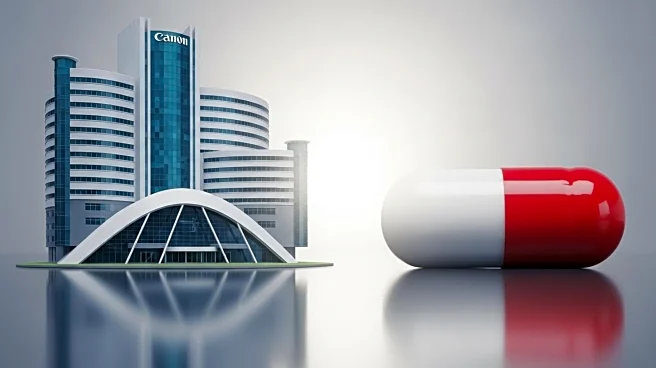What is the story about?
What's Happening?
Hospitals and pharmaceutical companies are in conflict over a proposed pilot program by the U.S. Department of Health and Human Services (HHS) that could alter the financial landscape of drug pricing under the 340B Drug Pricing Program. The pilot suggests a shift from upfront drug discounts to a rebate model, where covered entities would purchase drugs at full price and later receive rebates. This proposal has sparked significant debate, with over a thousand comments submitted. Hospitals express concerns about cash flow and operational challenges, while drugmakers argue the model ensures discounts reach eligible patients. The pilot is seen as a major shift in the 340B program, which has grown significantly in recent years.
Why It's Important?
The proposed changes to the 340B program could have far-reaching implications for both healthcare providers and pharmaceutical companies. For hospitals, particularly safety-net providers, the shift to a rebate model could strain financial resources and impact their ability to serve low-income and uninsured patients. On the other hand, pharmaceutical companies see the model as a way to ensure that discounts are appropriately allocated, potentially reducing misuse. The outcome of this pilot could influence future drug pricing policies and the financial dynamics between healthcare providers and drug manufacturers. It also highlights the ongoing tension between cost control and access to affordable medications.
What's Next?
The Health Resources and Services Administration, part of HHS, is expected to approve rebate plans by October 15, with the new model potentially going live on January 1, 2026. Stakeholders, including hospitals and drugmakers, are likely to continue lobbying for adjustments to the plan. The pilot's implementation will be closely watched, as it could set a precedent for future drug pricing strategies and healthcare policy reforms.















